Community Connections
Celebrate, support and stand up: IDAHOBIT Day at UC
It’s a day to celebrate the successes and achievements of the LGBTIQ+ community, and recognise the great strides that have been made towards equality … but it’s also important that we never forget why IDAHOBIT Day – the International Day Against Homophobia, Biphobia, Interphobia and Transphobia – exists.
Everyone, everywhere, deserves the right to be themselves, to be safe and to live free of the impacts of discrimination.
On 17 May 1990, the World Health Organisation removed homosexuality from its Classification of Diseases and Related Health Problems.
That was just 32 years ago.
We’ve come a long way – but we have a long way to go.
And beyond IDAHOBIT Day itself, meaningful change is to be found in the practical, lived efforts of everyday experience.
Read on, as members of the University of Canberra community share how they stand with – and within – the LGBTIQ+ community.
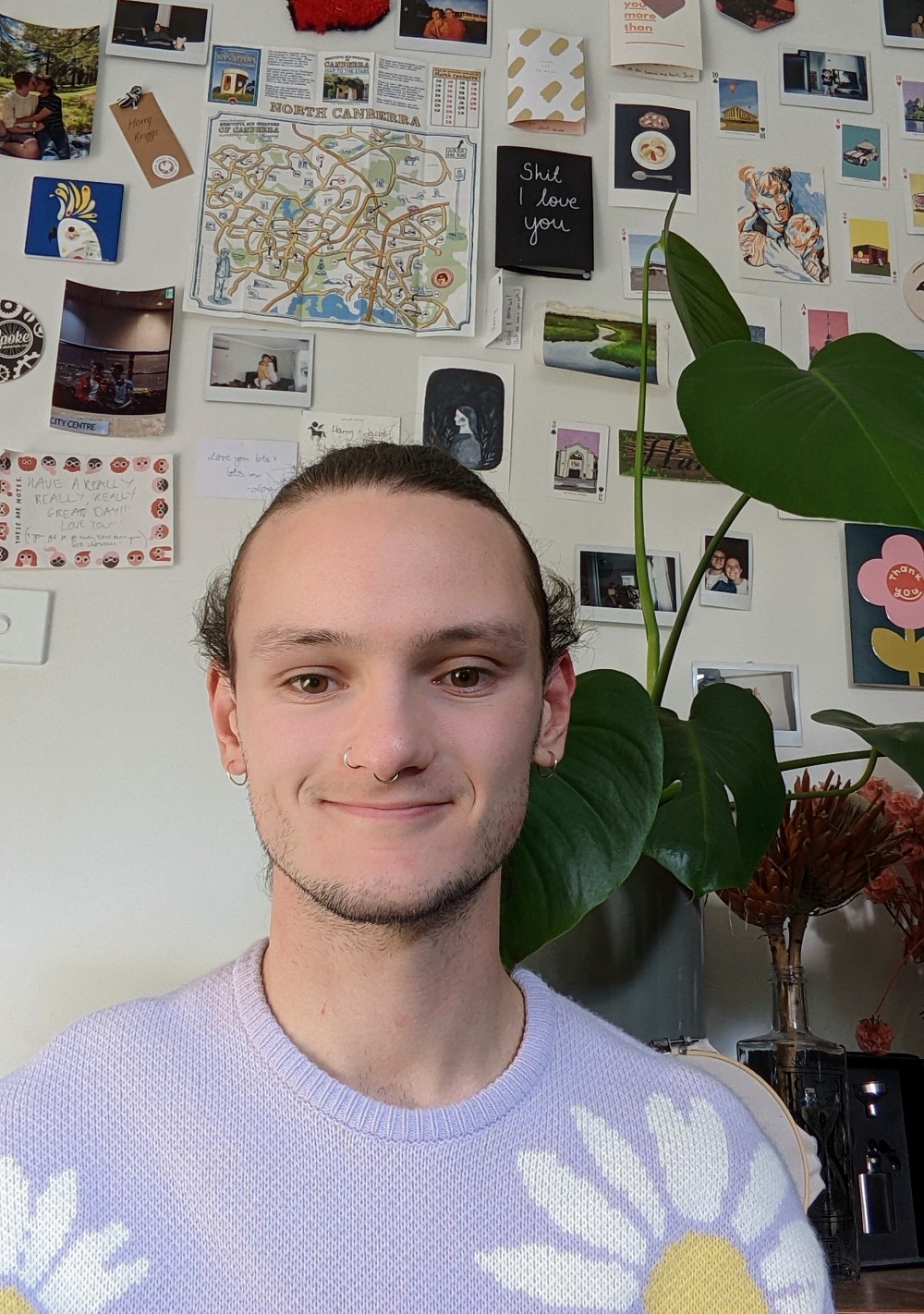
Jacob Webb (he/him)
Bachelor of Politics and International Relations/ Bachelor of Law, Political Science and Government/Law student
Student Representative Council Vice President, Diversity Officer and Student Advocacy Coordinator
Coming from a small country town, I didn't have a lot of opportunities or spaces to celebrate my Queerness, and support others in these spaces. Due to that, I didn't really know what it was or how to engage with this part of me.
Celebrations are the way that you can get to know yourself deeper, and get to see how diverse and beautiful our community is. Support, though, is paramount – creating spaces and room for others to grow and learn more about themselves, while supporting them through these journeys, is the purest thing you can do as a fellow Queer* person or Ally.
Standing up against discrimination is the other pillar of support. It's the way we show that being Queer* isn't unnatural or something to be ashamed of. It's also about the educational side of it, how we come out of the shadows and prove to ourselves that we are normal and take others on that journey with us.
I will always stand by the idea that there is a form of activism for all of us. I go to the protests because it's one of the most practical ways to show strength and community. But protesting isn't my first choice.
Where I feel comfortable is behind the scenes, working with people to make strong, and informed policies and procedures. Working with people to create spaces for us to be free to express ourselves.
It's more my personal philosophy that with space, we have a place to create community. With community, we have belonging.
And importantly – never underestimate the power of well-written and informed policy.
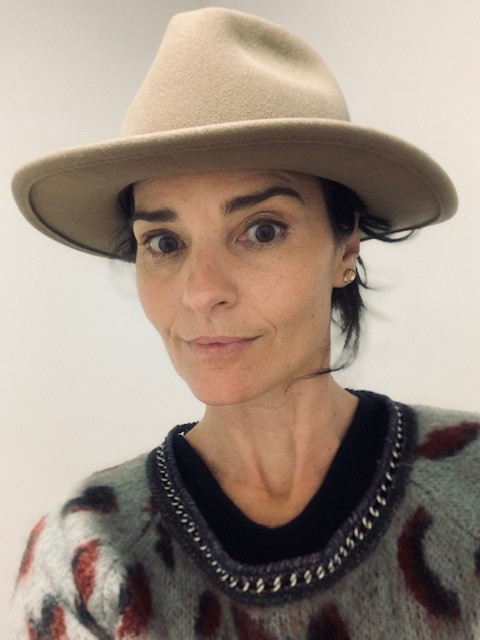
Sarah Bruen (she/her)
Student Representative Council Governance Officer, Student Appeals, Integrity and Leadership
The LGBTIQ+ community continues to experience discrimination – legally and socially. While progress has been made, there is still much to be done.
Days like IDAHOBIT keep the conversation active. They provide the opportunity to highlight the actions we can all take as members of the community to work towards inclusive environments, and provide the opportunity to demonstrate the strength and resilience of the LGBTIQ+ community.
Through story-telling, we can celebrate the successes and rejoice in their achievements, while educating others about the hurdles and barriers that many in our community face daily.
In an ideal world, we would all be provided equal opportunities and rights. Discrimination prevents this equality, but building inclusion actively works to eliminate discrimination.
When we take a stand against discrimination, when we actively work to build inclusion, we are making progress towards ensuring that gender/sexuality/cultural background/age are not preventing individuals from feeling respected and valued. That all are being provided access to opportunities and resources.
We are making progress towards creating that ideal world.
How do I contribute to that? I try to be open to learning opportunities – without putting the burden on others to “educate” me. Over the past few years, I have actively worked on not shying away from scenarios in which I may feel uncomfortable, but which offer the opportunity to minimise harm to others. I think it’s important to accept my position of privilege as such – my moments of feeling uncomfortable are nothing compared to those who face discrimination daily.
I actively participate in learning opportunities, from training offered by People and Diversity to personal conversations with colleagues, and then try to implement tangible actions, such as amending my language to be positive rather than deficit, and to not assume pronouns.
And the action I’m taking this week? Voting, with human rights at the forefront of my decision making.
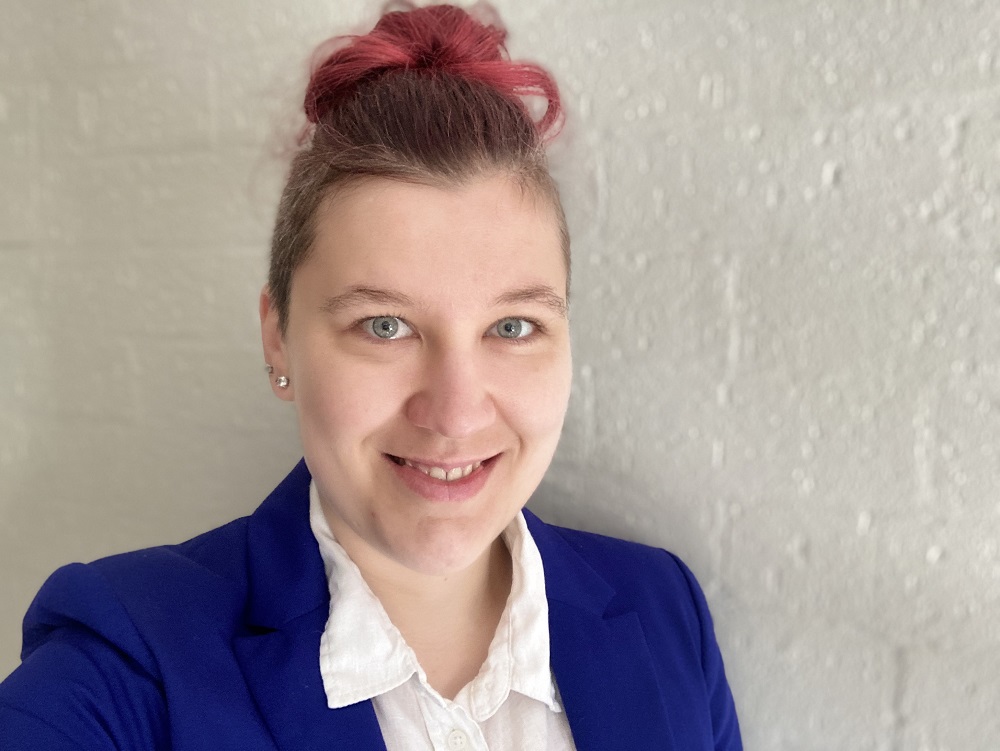
Robin Ladwig (they/them)
Diversity Advisor and PhD candidate, Faculty of Business, Government and Law
Through my research about the work experiences and career development of trans and gender diverse people, I try to help educate employers about inclusion and gender diversity, and advise them on the various actions they can take, doing my bit against discrimination and towards building inclusion.
I was born in a world in which homosexuality was classified as a disease, and related to health problems.
In Australia, gay sex was illegal in Tasmania until 1997.
When I was ten, the first Transgender Day of Remembrance was held to memorialise Rita Hester, a Black transgender woman killed in her Boston apartment in 1998, and one of the many transgender murder victims that we mourn every year.
Ten years later, the International Transgender Day of Visibility celebrates the trans and gender diverse community and highlights the fight for their human rights and equality.
In 2015, the long rally for marriage equality in Australia started with the Marriage Equality Plebiscite Bill. Even the overwhelming representation of ‘Yes’ votes could not cover up the damage done to the LGBTIQ+ community, forced to seek ‘permission’ to legitimise our life choices – as we have had to do, so often in our lives.
And until early this year, the Religious Discrimination Bill threatened the safety of our trans and gender diverse students.
We have come a long way, and IDAHOBIT Day encourages me to reflect on this journey and to pay my respects to the people who have fought, and continue to fight, for our human rights. But it also reminds me that we have a long way to go.
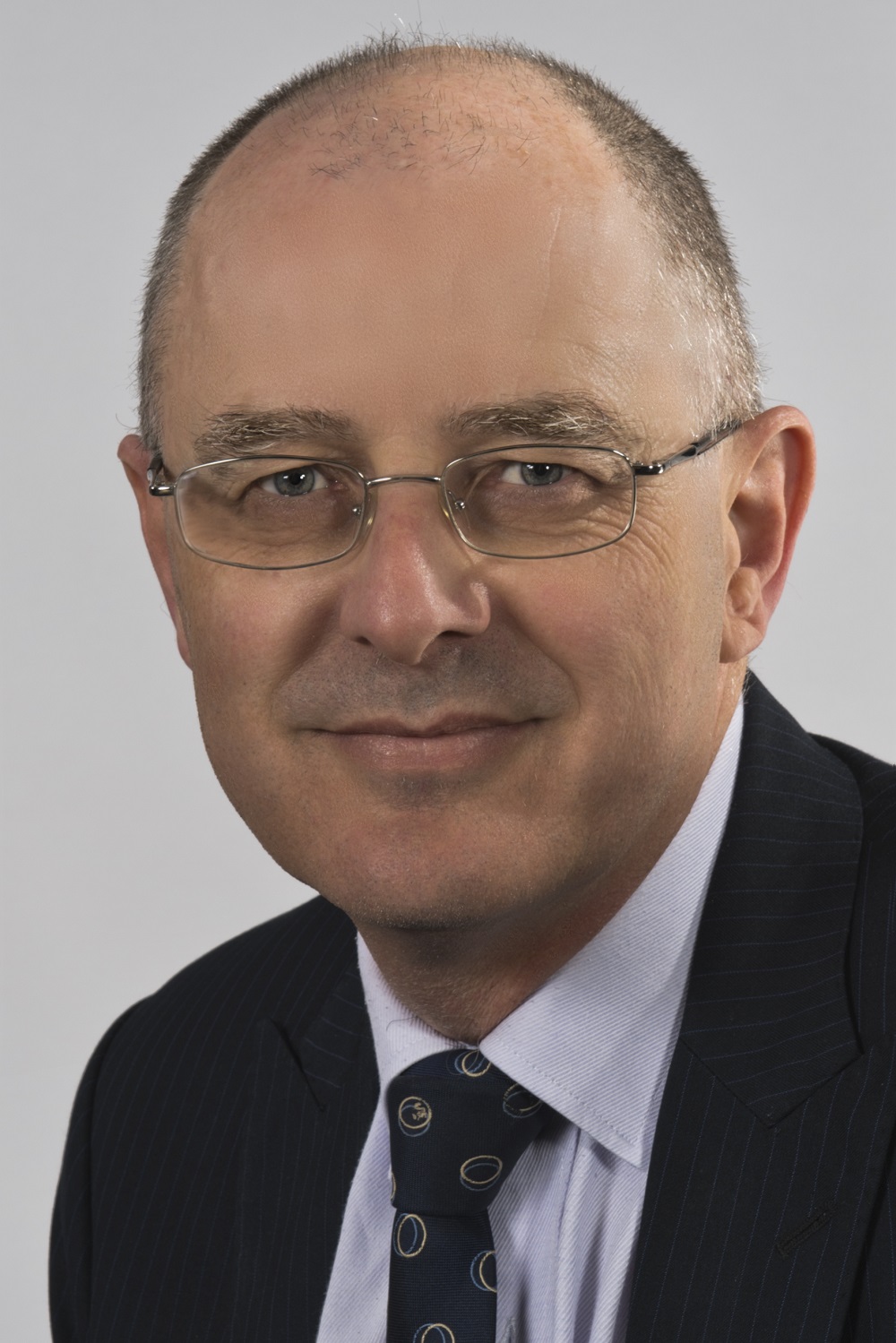
Professor Geoff Crisp (he/him)
Deputy Vice-Chancellor and Vice-President Academic
It is a privilege to celebrate the full diversity that exists in our community. Being part of our UC community means helping to create an environment where each person is important, and is acknowledged for their individual contribution. Celebrating our LGBTIQ+ community affirms our commitment to staff and students that they are unique and valued.
UC strives to be an inclusive and welcoming place to work and study. Everyone should feel comfortable being themselves, and being able to express who they are as a person in an environment that encourages diversity. Being able to safely express who you are means you can be authentic and bring new perspectives to any discussion or plans.
How will I practically live these beliefs? I’ll continue to work with the UC Ally Network to remove barriers that prevent people being able to express who they are – and I will continue to listen and learn, so that I can reduce those visible and invisible barriers that often prevent many people from participating more fully in our community.
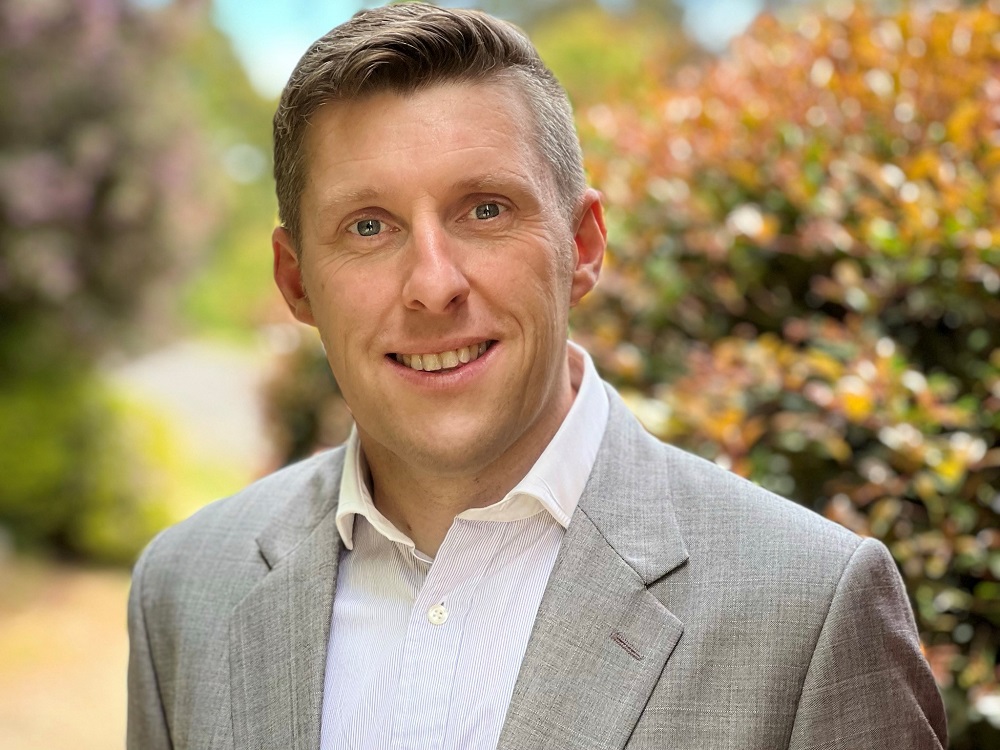
Craig Mutton (he/him)
Chief Digital Officer and Vice-President, Digital
As a proud member of the LGBTIQ+ community, I believe celebrating and supporting the community promotes self-confidence and acceptance, enabling all of us to feel accepted in society and to realise our fullest potential.
A major challenge for many members of the community is the rejection they often experience. Seeing others celebrating and supporting the community encourages its members to express their identities, which in turn promotes self-expression and advocacy.
For people not part of the LGBTIQ+ community, something like IDAHOBIT Day offers an opportunity to educate themselves and to address any misconceptions and biases they might have, which in turn promotes empathy and acceptance towards people who are different from ourselves in other ways (for example ethnicity, religious belief, gender etc).
Discrimination against the LGBTIQ+ community – as with racism or sexism – is caused by bigotry, which rests on unfounded beliefs. Discrimination is harmful; it perpetuates inequality, can lead to emotional distress, depression and anxiety, and isolates people.
It’s imperative that we each take responsibility for calling out discrimination when we see it, and then act by building inclusion. It has been repeatedly shown how important it is to support individuals to feel connected and valued within society, and address any form of social exclusion they are experiencing every day.
I celebrate our LGBTIQ+ community by being a visible member, and drive to build inclusion whether in a social or professional setting.
My husband and I invited the children of friends and family to our wedding in 2018, which helped these younger members of our society to see same-sex marriage as equal to traditional marriage. I have also mentored a number of younger LGBTIQ+ members to enable them to realise their professional goals.
Compiled by Suzanne Lazaroo, photos: supplied.